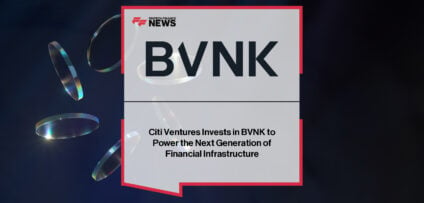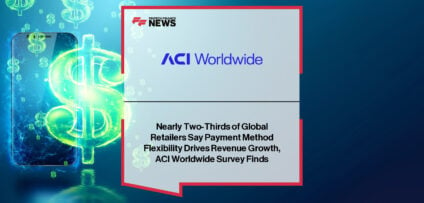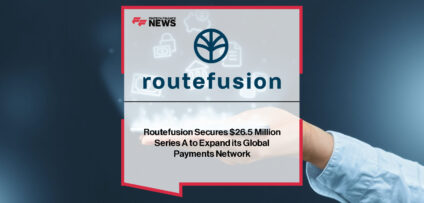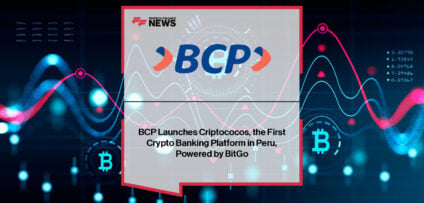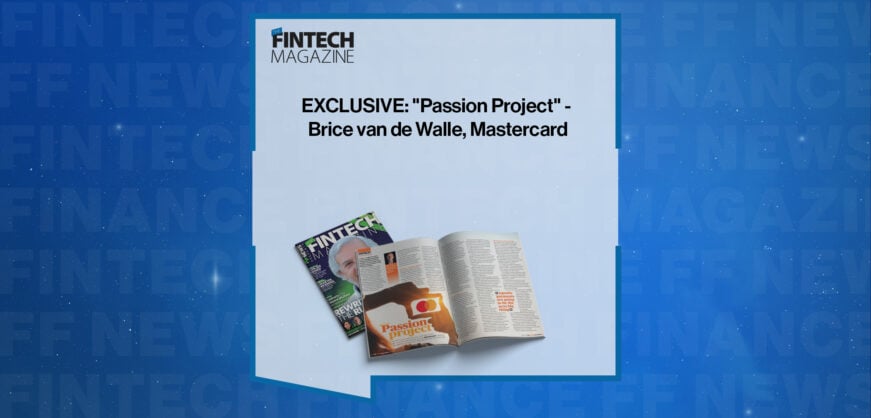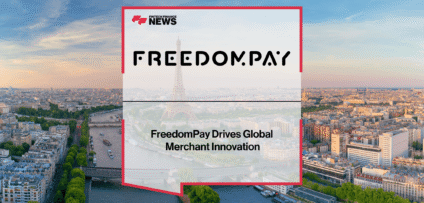Breaking News

Speech by An Taoiseach, Leo Varadkar,T.D., Temenos Community Forum, Convention Centre Dublin
I am delighted to be here today and I would like to thank Temenos for choosing Ireland for this year’s location for your Community Forum. In particular, I want to welcome those of you who have come from overseas, you are very welcome to Ireland.
Ireland is one of the world’s leading technology hubs, so the themes you are exploring today such as digital disruption, fintech, and digital banking are ones that resonate with us. The transformation of our economy over the last half-century has been remarkable. Our earliest tech investments in Ireland were back in the 1950s, that was an era of typewriters and punch cards. Today, Dublin is one of the leading tech capitals of Europe. We have our own Silicon Docks hosting the world’s leading technology companies. We specialise in progressive innovation in AI, cloud computing, robotics and analytics.
I am often asked how we achieved this transformation, going from one of the poorest countries in Europe to one of the richest in only a few decades. Going from predominantly agrarian economy to a high tech one in a short period of time. There are a lot of factors behind it but I think the one that stands out most of all is our commitment to education and nurturing talent. That continues to be the core ingredient of our success. Starting with 2 years of free preschool, moving through to primary school, through secondary school, and into a high quality third level education sector. That of course is complemented by a very supportive business environment, one that welcomes business and promotes entrepreneurship. I think that is why Dublin is an ideal location for today’s event.
Digital economy
As you know, the theme of this year’s Forum captures the current state of digital transformation. We all now realise that digital transformation involves much more than the uptake of digital technologies. It also involves the transformation within society and within business that is needed to turn new technologies into economic and social opportunities. That is very much where our focus in Ireland is today. Ireland continues to be recognised internationally as a leading global centre for internationally traded financial services.
We have one of the most globalised and open economies in the world – so, more than most, we need to ensure that we are a leader and not a follower when it comes to emerging economic, social and technological developments. The Government’s strategy is to provide a coherent vision to enable us benefit from digitalisation. We are aware of the challenges: the inclusivity of digital transformation; the impact on the workforce, the fear of the new. Our response is to be flexible and agile and to embed trust. We want to strike the appropriate balance between security and privacy and usability and innovation.
Whether we like it or not, the digital footprint is everywhere. Our policy and business responses need to match that reality, and that’s why I very much support an open and collaborative approach. I believe the role of governments is to provide the necessary infrastructure and environment to support, foster and facilitate the digital transformation. Our responsibilities do not end there. We must also lead by example and fully embed digital governance and data-centric models in our own work.
Economy
This is increasingly a priority for us in Ireland as we build on our recent record of sustainable and balanced economic growth. There are now more than 2.2 million people at work here in Ireland, unemployment which had peaked at around 15% during the financial crisis is now below 6%, and we expect the next set of figures which will come out in June, to show that there are now more people at work in Ireland than at any time in our history.
We have sustainable growth and we want to make sure that we use that to improve the lives of all our people and make sure that all parts of the country experience our prosperity. As a government whenever we talk about our economy, society and political objectives, we tend to do so in terms of six principles.
The first is prudent management of our public finances. Last year we ran a small budget surplus, this year the budget will be broadly balanced and we intend to run a surplus again next year. We are also reducing our national debt as a percentage of national income. We are doing that because we believe that when an economy is going well you should balance your books, you should run a small surplus, so that when the inevitable downturn comes, and it always will come, or when you experience external shocks – that we have some headroom, some space, to deal with that, without having to cut spending or raise taxes which is what we had to do in the past.
Second is being determined to raise living standards for our people, because there is no point in being in politics if your core objective is not to raise living standards. We are doing that in a number of ways, sustainable pay rises in the public and private sector, modest tax reductions, raising the point in which people enter the higher rate of income tax. Ireland is a low tax economy except when it comes to income tax. People on middle to high incomes pay very high rates of income tax and often pay that highest rate of income tax much too soon, so we are moving that threshold upwards over the years to take more people on middle incomes out of the highest tax rate and to make sure everyone pays less of their income at that rate. We are also increasing welfare and pensions and doing things to reduce the cost of living, for example extending free health care to more people, bringing in subsidised child care and other things.
The third principle is achieving full employment with good jobs. We are not far off full employment at the moment but we want to make sure that the jobs we have in Ireland are good jobs, ones that pay the bills so people can aspire to home ownership. Ones that respect the balance between work life and family life and, crucially, ones that provide a pension in retirement.
Our fourth principle is investing in infrastructure. With Project Ireland 2040 plan we have an ambitious ten-year plan to invest €116 billion in our public infrastructure. That will bring us from being a country that invests less in infrastructure than the average European country to one of the highest investors at the end of that 10 year plan. And to show we are serious, we are increasing public spending on infrastructure next year by 25%. That’s investment in housing, transport, in healthcare, in broadband and action against climate change.
The fifth is modernising and improving our public services. We are now a high spender for example on areas like health and education, but particularly in health we don’t get the return, the kind of health service we need. So while we were short on resources for health and education in the past, we now spend record amounts of money on health and education. The key to getting results in the future is not going to be solely increases in funding but rather changes in practices, in systems and we are very much embarking on a reform programme in that regard as well.
The sixth principle relates to our role internationally. We are a small country, on the edge of a continent, but we see ourselves as something very different. We see ourselves as an island at the centre of the world. We are totally committed to the European Union. Even though others may be leaving, we are going to stay at the heart of the common European home we helped to build. We are founder members of the single market, founder members of the Euro, English speaking, a common-law jurisdiction and we feel very much that our place is in Europe. We are also committed to multilateralism, to our involvement in the United Nations, participating in peace-keeping missions around the world, committed to the Paris Accords on climate change and we believe in free trade. We know that free trade has made Ireland more prosperous and we want to cut and make more trade deals with more partners around the world. We are also expanding our global footprint and have set out a very ambitious plan to double Ireland’s presence on the ground in countries and capitals around the world over the next couple of years. That involves opening new embassies, ensuring we have new direct air-routes and sea-routes, expanding the presence of our enterprise, food promotion and tourism promotion agencies around the world. That is something we are doing to a certain extent in response to Brexit, because over time the UK market is going to become less and less important for Ireland, indeed that has been the case now for nearly a century. But even if it wasn’t for Brexit, we should be doing that anyway, Europe is an increasingly small part of a much bigger world and we want to make sure that we’re part of that.
Brexit and international developments
We cannot predict exactly what impact Brexit is going to have or the broader international shift in attitudes toward trade and globalisation. However we are involved in intensive contingency planning for whatever does happen. I know many of you here today will have particular interests and particular concerns arising from Brexit. During my meetings with business leaders the issue of the transitional arrangement is regularly raised. We welcome the conditional agreement on the term of the transition period, running until the end of 2020. We think it is important to give companies certainty, to give public services time to prepare, and citizens too. But of course, this transition period is not guaranteed. It will only happen if the UK government honours the commitments that it gave last December and again in March on there being no hard border on the Island of Ireland. I know that companies are seeking clarity and certainty about their ability to passport products and services from the UK across the EU after Brexit. I believe Ireland offers that clarity and certainty, as firms that are authorised here to carry out certain regulated activities, may passport this authorisation to other EEA states.
More broadly, we are developing a framework to deal with the challenges and opportunities arising from Brexit for the sector here in Ireland. Following the withdrawal of the UK from the European Union, we will continue to offer multinational companies a unique gateway to the European Union and the single market.
- English speaking;
• In the Eurozone and single market;
• Politically stable;
• Common Law;
• Pro business/tax efficient;
• Welcoming of talent and migrants from all over the world.
Why Ireland
No matter what happens with Brexit, Ireland will continue to offer a stable and competitive corporation tax regime with strong incentives for research and development. For over 35 years Ireland has invested in educating and attracting software engineers. As a result, we have a vibrant start-up community, supporting innovation and imaginative and exciting research. That is why leading companies continue to see Ireland as an international location to support future growth. We are one of only a few locations globally with a proven track record in both the financial services and technology arenas.
Financial Services developments
In recent years we have placed considerable focus on the development of a fintech and blockchain ecosystem in Ireland. Fintech is changing the world of finance and Ireland is well positioned to be a major player. The Government is determined to ensure that Ireland stays a very competitive location for global fintech investment, and we recognise that there is always more that can be done. We have plenty of competitors who would be very keen to eat our lunch if we were to fall behind in any way. A census of the fintech sector is currently being undertaken which will allow us to compare ourselves with leading fintech hubs and highlight areas which need improvement, drawing on best practice and best example from elsewhere.
Later this year, our Central Bank will launch an innovation hub and an industry engagement programme. This will ensure we keep pace with the evolving fintech and regulatory landscape. We have also recently commissioned research to look at the current position in payments, analyse recent trends, and benchmark Ireland against other countries. And we look forward to working with our European partners on the European Commission’s recently launched action plan for Fintech.
Assure Hedge
This year one of your biggest events is the competition to find the best fintech demo. Companies have come through some very difficult rounds across Europe to get here, and I’m delighted that Ireland is represented through Assure Hedge. Developed in the quirky Dogpatch Labs in the IFSC, it’s a company that uses smart algorithms to automate the selling of foreign exchange options. As Brexit approaches many UK exporters are understandably worried about the effects of currency volatility. They can be reassured by the fact that there is now a company providing a cost-effective solution. Leadership in business means identifying future problems and trying to solve them now, and win or lose I think that Barry McCarthy’s company is showing exactly that kind of leadership.
GDPR
I believe that our approach to data protection should balance appropriate regulation with a need to stimulate innovation. The General Data Protection Regulation will come into effect across the EU this Friday, and the accompanying Data Protection Act 2018 here in Ireland. We know that the GDPR brings significant changes and some challenges for us all. We should not fear this. I believe, the GDPR fosters the trust that will help us realise the enormous potential of digital technologies.
Three centuries ago one of the greatest writers in Irish history, Jonathan Swift, argued that technology should be used to improve people’s lives, otherwise we were floating in the clouds. In the progress we have made in the last few decades we have been able to transform people’s lives while soaring through the clouds. And we are only getting started. So, in the spirit of Swift, I hope you have three days of good engagement and great debate, and I wish you the very best in your deliberations in the days ahead.
Thank you.
- EXCLUSIVE: “Passion Project” – Brice van de Walle, Mastercard in ‘The Fintech Magazine’ Read more
- FreedomPay Drives Global Merchant Innovation Read more
- FIS Brings AI-Powered Advancements to Seamless, Personalized Digital Banking Experiences Read more
- Citi Ventures Invests in BVNK to Power the Next Generation of Financial Infrastructure Read more
- Nearly Two-Thirds of Global Retailers Say Payment Method Flexibility Drives Revenue Growth, ACI Worldwide Survey Finds Read more





